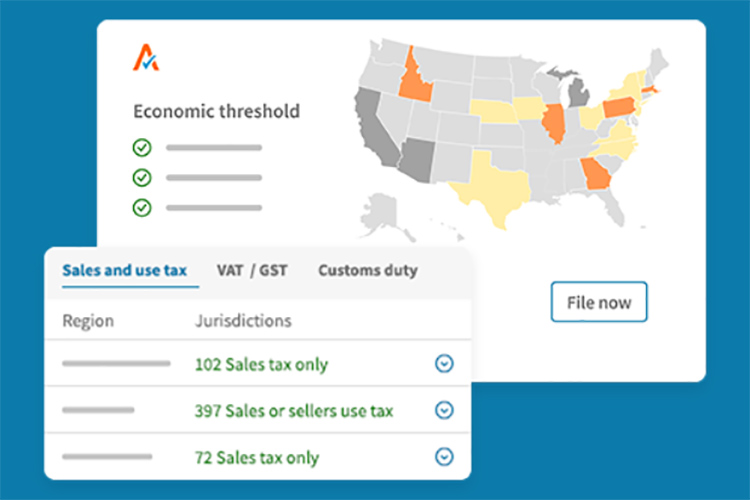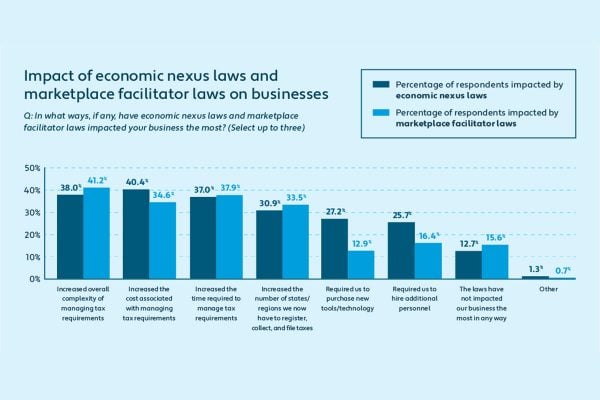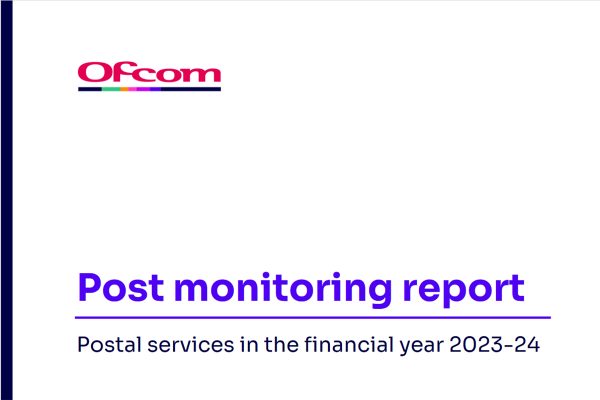If you’re finding cross-border complexity getting ever more tricky to navigate and costly to comply with then you’re not alone. Avalara have unveiled new analysis exploring the impact of cross-border complexity on businesses and consumers globally. The findings reveal a complex compliance landscape and a disconnect between consumer expectations and the realities of cross-border commerce.
Cross-border complexity impacts growth for all businesses
Overall, 82% of businesses surveyed around the world indicated that cross-border compliance complexity impacts their decision to sell into new markets. Customs duty and import calculation, trade restrictions and payments and shipping complexities are the factors of cross-border compliance causing the biggest challenges for businesses. High-growth, high turnover businesses are impacted more severely by cross-border compliance: while only a 27% of businesses with turnovers under £100,000 cite customs duty and import calculation as a challenge, this shoots up to almost half (49%) of businesses with turnovers of £100,000-£999,999.
Business challenges directly impact consumer experience
The difficulties businesses face in cross-border commerce directly translate into frustrations for consumers. The top reasons shoppers abandon their online carts when buying internationally include: expensive shipping, lengthy delivery times, and final costs, including duties and taxes, not properly displayed at checkout.
Businesses often underestimate the impact of these factors. For example, while 55% of consumers cite shipping costs as the number one reason, they abandon their cart, only 40% of businesses believe this is a critical factor.
Further exacerbating the problem is the prevalent use of Delivered at Place shipping by businesses. Almost three-quarters of companies surveyed employ this method, which leaves customers responsible for customs clearance, duties, and taxes. 30% of businesses surveyed globally exclusively use this approach, despite it being a key pain point for consumers.
The consequences of these practices are stark. Nearly 3 in 5 (58%) consumers report experiencing unexpected customs duties charges upon delivery, with half of those who buy cross-border products describing these costs as “shocking.” This lack of transparency has a significant impact on customer loyalty and satisfaction. Three-quarters (75%) of surveyed shoppers say they reconsidered future purchases from a business after this experience, and nearly half (49%) say they refused the package altogether upon delivery.
Businesses turning to AI to unravel complexity
Younger shoppers are much more likely to purchase cross-border. Around two-thirds of both the 16–24-year-old (63%) and 25-34-year-old (68%) age groups surveyed have made international purchases in the last year, compared to only 41% of shoppers over the age of 55. Of those who made an international purchase in the last twelve months, younger consumers are almost twice as likely to experience surprise costs upon delivery compared to older consumers.
Businesses are increasingly using AI-enabled technologies to manage both an increasing consumer appetite for international shopping and their cross-border compliance requirements.
52% of businesses surveyed globally are leveraging AI and automation technologies, with a further 26% aiming to do so in the next two years. The highest rates of adoption among businesses surveyed are in India (64%), Brazil (63%), and Denmark (60%). Businesses in the U.S. (39%), Mexico and Australia (both 44%) have been the slowest to adopt new technologies, according to Avalara’s survey results.
The disconnect between seller practices and shopper expectations leading to hidden costs can damage the cross-border commerce experience. In an era where international e-commerce is becoming increasingly prevalent, especially among younger consumers, businesses that fail to adapt risk being left behind. Solutions that support international growth and deliver a superior customer experience are key to building a business fit for the modern, borderless digital economy.
– Craig Reed, GM, Cross Border, Avalara









